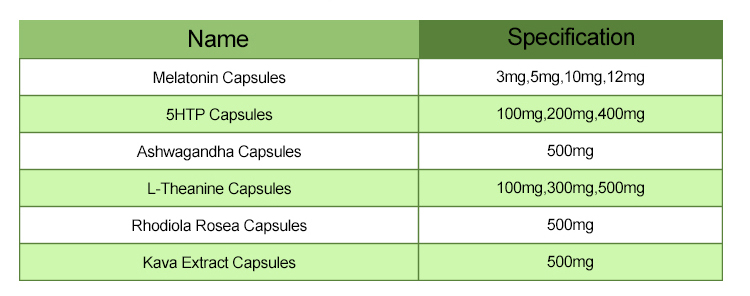Melatonin capsules are a type of supplement that contains the hormone melatonin. Melatonin is naturally produced by the pineal gland in the brain and plays a key role in regulating sleep-wake cycles. It’s often referred to as the “sleep hormone” because its levels rise in the evening, signaling to the body that it’s time to sleep, and drop in the morning, signaling that it’s time to wake up.
Melatonin supplements are commonly used to help people with sleep disorders, such as insomnia or jet lag, by adjusting their sleep-wake cycles. They are available over the counter in many countries and are often used as a short-term solution for sleep problems.
It’s important to note that while melatonin supplements can be effective for some people, they may not work for everyone, and their effectiveness can vary depending on factors such as dosage, timing of administration, and individual differences in response. It’s always a good idea to consult with a healthcare professional before starting any new supplement, especially if you have any underlying health conditions or are taking other medications.

How to use Melatonin Capsules?
Using melatonin capsules effectively involves several key steps:
Consultation: If you’re considering taking melatonin, it’s wise to consult with a healthcare professional, especially if you have any underlying health conditions or are taking other medications. They can provide guidance tailored to your individual needs.
Dosage: Melatonin is available in various dosages, typically ranging from 0.5 mg to 10 mg per capsule. Start with a low dose, around 0.5 to 3 mg, and adjust as needed based on your response. It’s generally recommended to start with the lowest effective dose to minimize potential side effects.
Timing: Melatonin is often used to help regulate sleep-wake cycles. Take the capsule approximately 30 minutes to an hour before bedtime. This timing can help synchronize your body’s internal clock and promote sleepiness at the desired time.
Consistency: Consistency is key when using melatonin. Take it at the same time each night to help establish a regular sleep pattern. Avoid taking it too late in the evening, as this could interfere with your ability to wake up feeling refreshed in the morning.
Environment: Create a conducive sleep environment by minimizing noise, light, and distractions in your bedroom. This can enhance the effectiveness of melatonin and improve overall sleep quality.
Limitations: Melatonin is not a cure-all for sleep problems and may not be suitable for everyone. It’s important to address underlying causes of sleep disturbances, such as stress, poor sleep habits, or sleep disorders, in addition to considering melatonin supplementation.

Monitor Side Effects: While melatonin is generally considered safe for short-term use, some people may experience side effects such as daytime drowsiness, headaches, or dizziness. If you experience any adverse reactions, discontinue use and consult a healthcare professional.
Avoid Dependence: Melatonin is not intended for long-term use without medical supervision. It’s meant to be a short-term solution for sleep disturbances. Relying on melatonin indefinitely can lead to dependence and may mask underlying sleep disorders that require proper diagnosis and treatment.
By following these guidelines, you can use melatonin capsules effectively to help regulate your sleep patterns and improve overall sleep quality. Remember to approach its use with caution and seek professional advice if needed.
